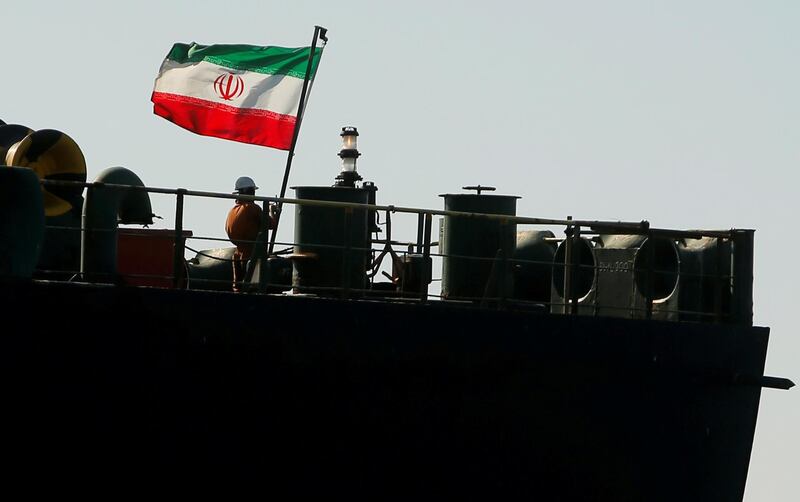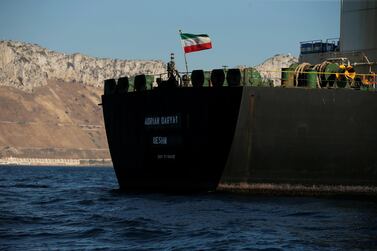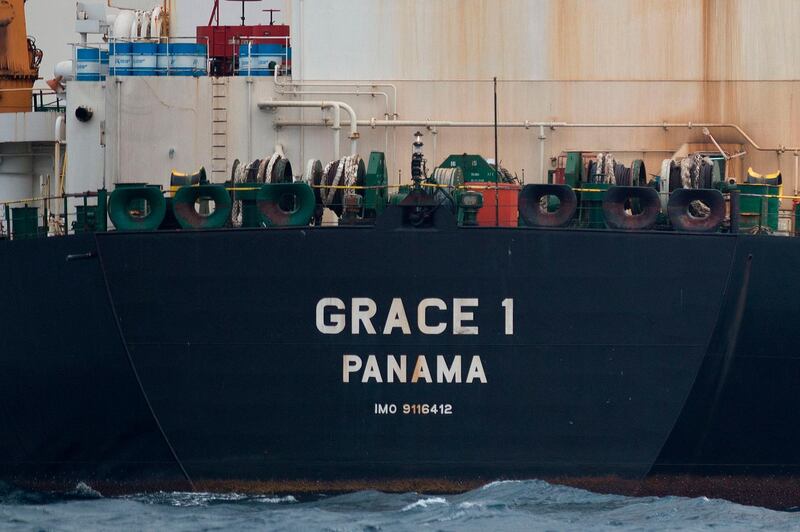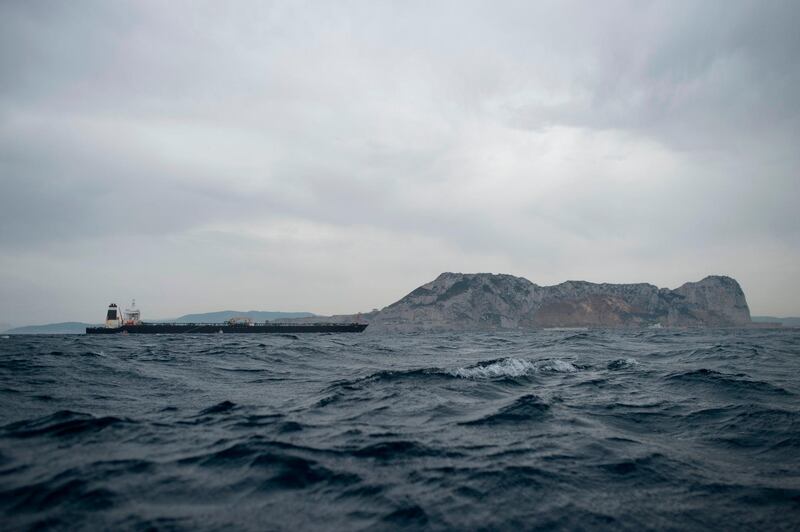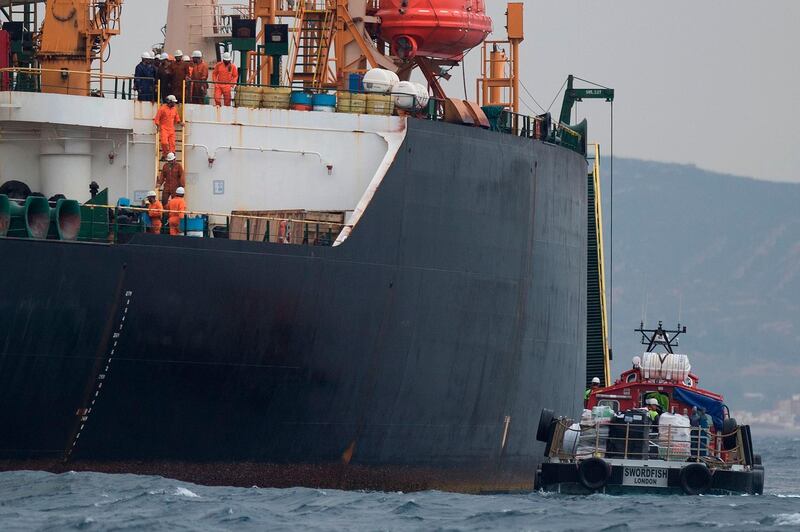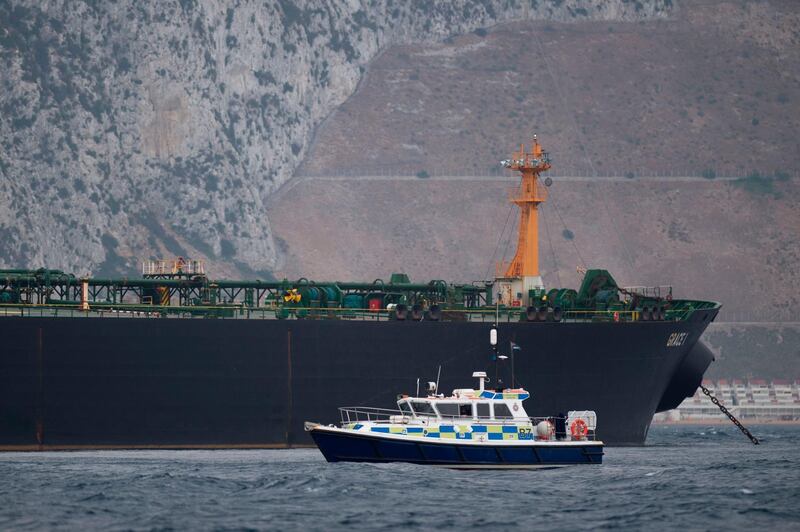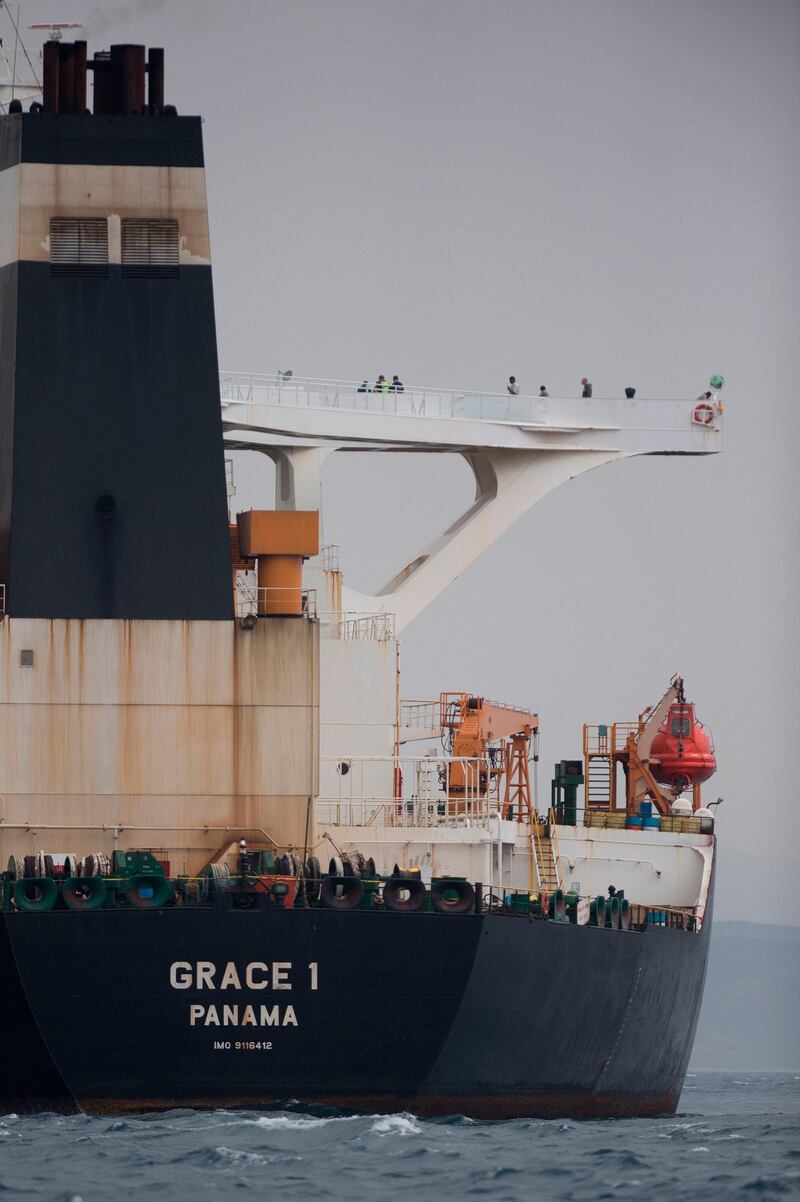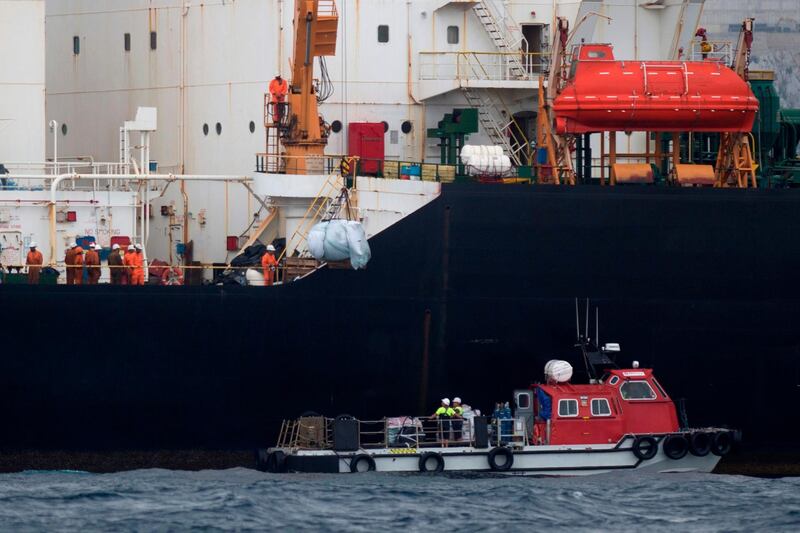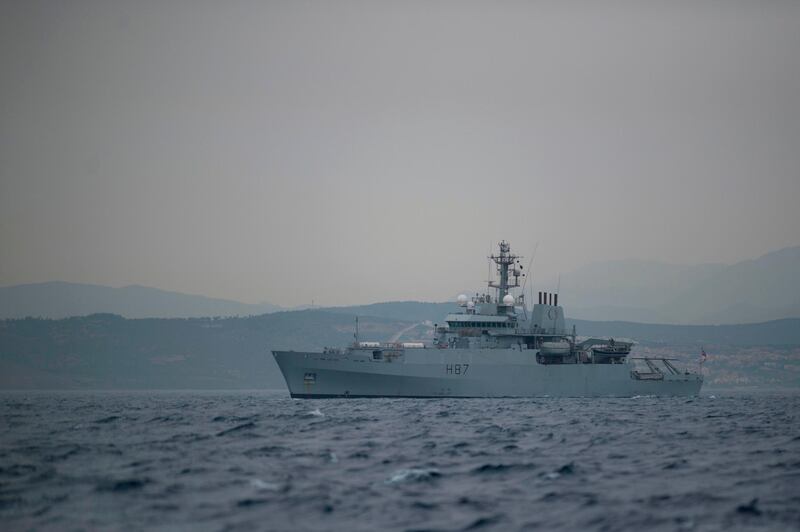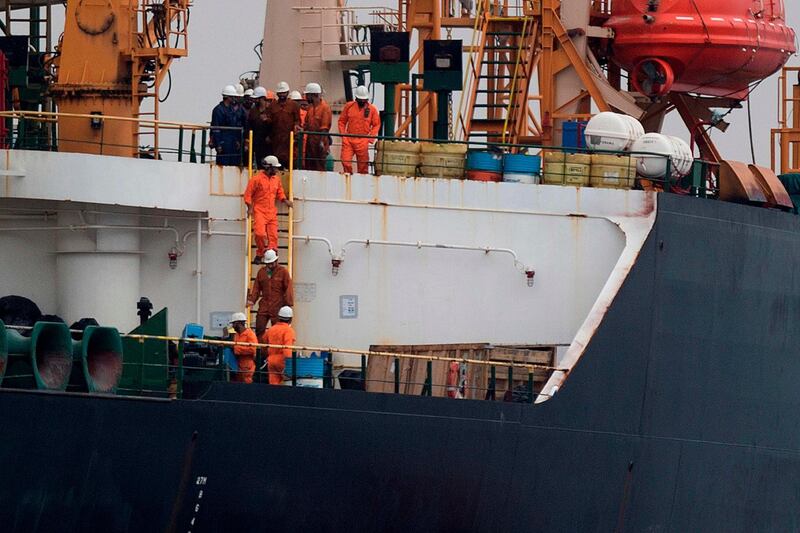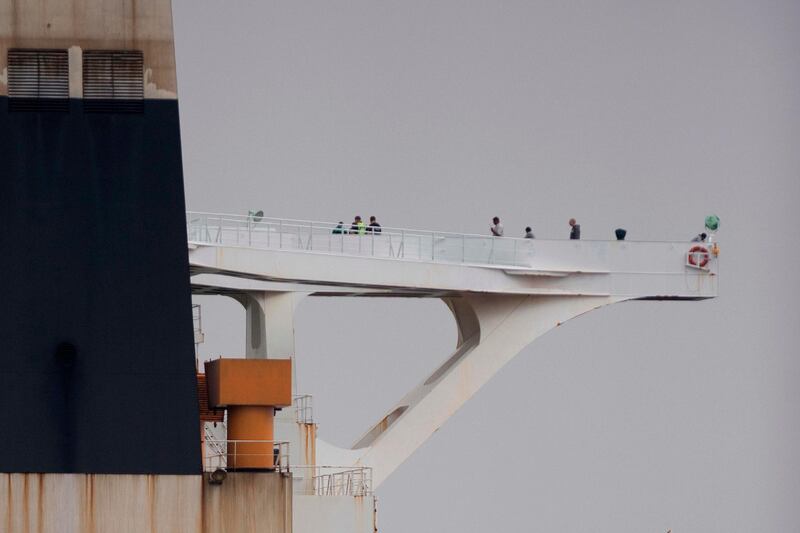The United States has conveyed its "strong position" to the Greek government about an Iranian tanker that sailed for Greece on Monday after it was freed from detention off Gibraltar and Washington says is carrying oil to Syria, a State Department official said.
Any efforts to assist the tanker could be considered as providing material support to a US-designated foreign terrorist organisation, which has immigration and potential criminal consequences, the official said.
The Grace 1, now renamed the Adrian Draya-1 and re-flagged as Iranian, cast off late on Sunday for Kalamata in Greece despite an 11th hour attempt by the US to block its departure from the British overseas territory.
Earlier on Monday Iran warned the United States against a second attempt to impound one of its tankers.
Speaking in the Finnish capital Helsinki, Iran’s foreign minister Mohammad Javad Zarif denounced US attempts to halt the ship’s progress as “politically motivated” while Tehran warned against a new effort to halt the ship’s progress.
Gibraltar seized the Grace 1 on the grounds that the vessel was transporting oil against EU sanctions imposed on Bashar Al Assad's regime but ordered the release of the vessel on Thursday after assurances the load would not end up in Syria.
The US-issued warrant issued on Friday sought the forfeiture of the tanker, its 2.1 million tonnes of oil and £1 million (Dh3.6 million) in a US bank account.
It cited the tanker’s links to oil sales to Syria, and links to the Iranian Revolutionary Guard Corps, a designated foreign terrorist organisation.
The warrant, issued after Gibraltar ordered the release of the vessel, said an inquiry was also under way over the alleged unlawful use of the US financial system to sell Iranian oil.
Marine tracking services indicated it the ship was due to arrive in Greece on Sunday and it was not immediately clear if the US would make a fresh attempt to seize the ship.
Mr Zarif told reporters that Iran was not interested in direct talks with the United States over the ship. He added that any mediation between Tehran and Washington should be focused on bringing the US back to the 2015 nuclear deal from which it withdrew last year.
Relations between the Iran and the West have been in disarray since May 2018 when the US withdrew from the nuclear deal that had lifted economic sanctions on Tehran in exchange for the Iranian government committing to give up its nuclear weapons programme.
Europe, on the other hand, has attempted to salvage the nuclear deal, attempting to soften the blow of US sanctions on Iran.
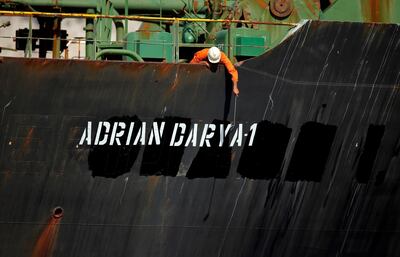
Finnish foreign affairs minister Pekka Haavisto emphasised after his meeting with Mr Zarif that Europe remained committed to the 2015 deal.
The split between Washington and European capitals has been brought into sharp relief by the seizure of the Iranian tanker.
Gibraltar said European laws did not provide grounds for complying with the US warrant. Senior IRGC officials are on EU sanctions lists but governments have stopped short of designating the entire organisation.
Sweden, one of the stops on Mr Zarif's northern European tour, is involved in negotiations over the fate of the Stena Impero. The British-flagged vessel, owned by a Swedish company, was stopped by Iranian forces in the Strait of Hormuz on July 19.
The seizure of the ship was viewed as a direct response to the detention of the Grace 1.
Mr Zarif’s arrival in Europe has been harshly criticised by the National Council of Resistance of Iran, an exiled opposition group viewed by Tehran as a criminal network.
The group, which has strong backing from Iran hawks in Washington including president Trump’s national security advisor John Bolton, accused Tehran of being a state sponsor of terrorism.
The exiled Iranian opposition group also accused Syrian president Bashar Al Assad, who counts Tehran amongst his principal military allies, of carrying out a “massacre of the Syrian people”.
Grace 1 was commandeered by British marines on July 4 after officials in Gibraltar were made aware the cargo was heading towards the Baniyas refinery in Syria, under the control of the Assad government.
The Gibraltar government said on Thursday that navigation charts, emails and voyage plans all confirmed the final destination was Baniyas.
Prior to the ship's release leaders in the British territory said they had been given written assurances by Iran the crude oil on the Grace 1 would not travel to Syria or any other anywhere else under EU sanctions.
